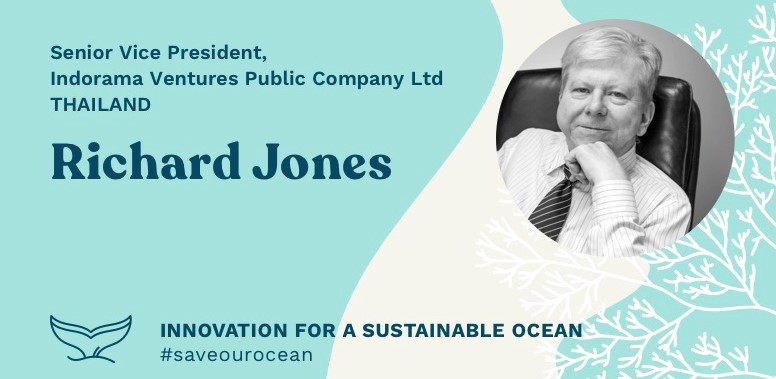
After years spent doing annual beach cleanups in Thailand, where Richard has lived for 32 years, he is working with his employer to create awareness and behavior change materials and classes to deal with the issue of plastic waste in the ocean at its source. Beginning with a popular children’s program, the education and awareness activities are now expanding to teacher training.
Tell us about yourself.
I’ve lived in Bangkok for 32 years.
I was born in Swansea, Wales. I grew up with parents who lived through the austerity of World War II. They taught me the value of reusing and saving.
Can you tell us about your work?
I strongly believe that 80 percent of the ocean waste comes from land and 20 percent of it from ships. Many years ago, I remember, we were on a mission to clean a beach in Thailand. After cleaning the same beach twice, we realized it was pointless. Instead, we resolved to address the source of the problem, not the end result.
With this in mind, at the end of 2017 we launched a long-term initiative — the 30-year Project — which aims to teach a generation of Thai children why we need to dispose of waste properly. As a first step, we are trying to ensure that people are responsible for their waste. For example, our company makes the material that goes into plastic bottles, so that is what we focus on.
The truth is that our key product, PET, remains the only 100 percent recyclable plastic and produces a much more environmentally friendly bottle compared to materials such as glass and aluminum. But the problem is that bottles float, making them more visible, and so bottle companies are often blamed for all the waste. We are conscious of it, which is why we decided to deal with this problem at the source.
To start with, we developed a short curriculum to teach children the four major types of waste and the importance of sorting and disposing of them properly. We turn it into a fun game for children with prizes, for instance. While our initial target includes children between six and nine years, we are experiencing a growing demand from high schools, too.
We also teach companies, and even some global companies, who have their local head office in Bangkok. Our next focus will be to teach teachers and future leaders of Thailand. We also create books and videos for schools and plan to expand them to reach a broader range of children.
"Everyone must learn that the ocean receives waste from the land. We must work together with educational institutions, governments and the private sector to ensure that waste doesn’t reach oceans in the first place."
Richard Jones
Senior Vice President, Indorama Ventures
What are you most passionate about?
I have a dream — of a father and daughter walking down the street. While the dad finishes a refreshing drink and tosses the bottle away, then his nine-year-old daughter picks it up and says, “Daddy you forgot about this.” If I can get there, I will die a happy man.
I can remember why we started using plastic — parcels fell out of paper bags, or deliveries were ruined because they could not withstand rain. People forget the difference plastic made when it was first invented - it was meant to be durable and reusable. That is what we need to teach young people in Thailand to reuse plastic.
What do you see as the biggest challenge facing our oceans in 2020?
Turning off the source of the ocean waste from the land and creating the awareness so that people understand where it comes from and what they can do to stop it. It’s a not a year-long project, this is a full-time job that will last a generation, at least.